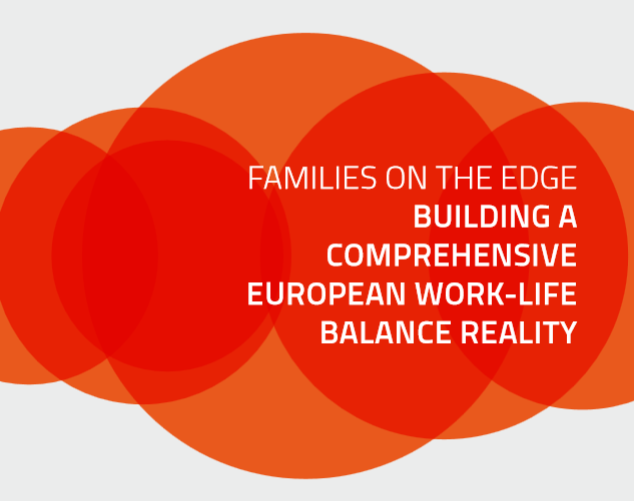Girls outperform boys in school but they are under-represented where big decisions are taken. Women earn 16% less than men on average in the EU and when they get older, their pension is 39% lower than men’s. We all keep repeating this every year but the situation does not get better for women, no or little action is taken and too often these actions are not strong enough to bring change. Europe is in denial and for too many years it has avoided confronting the structural problems that women face. It is now time to change the rules of the game: move away from a society and an economy built by men for men during centuries and move towards a fairer, more equal and more modern society.
On 26 April 2017, the European Commission will publish a package of measures to help working families and carers better reconcile work and family life. This can be a game changer, an opportunity to provide people in Europe with concrete responses to their everyday needs: strengthening different leaves (e.g. parental leave for women and men; calling for quality childcare and long-term care; as well as promoting flexible working arrangements).
For this to work, however, the proposal of the European Commission must be ambitious, it must go beyond fears and speculations of being expensive in the short run, but look at the total benefits (social and economic) that it will bring in the short, medium and long term. It must also bear in mind that all people in the EU must hold the same rights and impose legislation where there is a mandate to ensure that there will be no division between first and second class citizens, those protected by rights in legislation and those who are not.
Our contribution to the celebration of International Women’s Day is to try to level the playing field, putting forward proposals that can erode inequality at one of its roots. We call for a move towards a reconciliation economy and society, for women and men, to be able to celebrate not only women’s day on 8 March but gender equality all 365 days of the year.
See our vision, policy approach, and recommendations for EU legislation in our new COFACE position paper: Families on the Edge – Building a Comprehensive European Work-life Balance Reality (March 2017)





